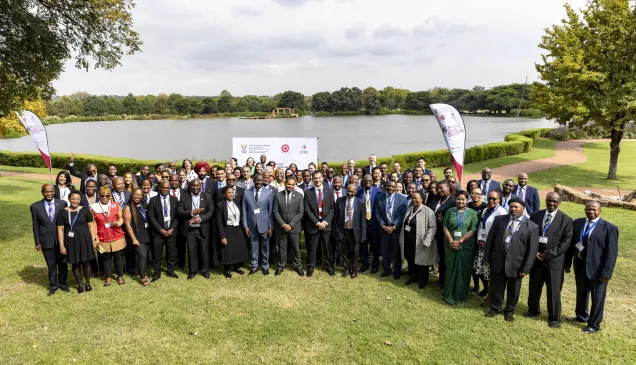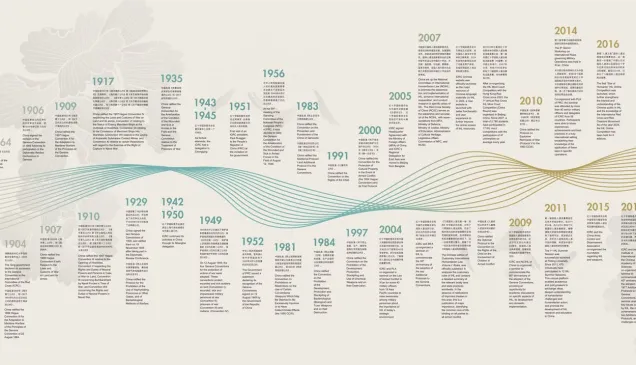Traitors in Our Midst

The ICRC translates over 14 million words a year from and into Arabic, Chinese, English, French, Russian, Spanish, and many more. But what actually is translation? One of our in-house translators in Geneva tries to give some answers.
Les traducteurs ont une fonction de civilisation. Ce sont les ponts entre les peuples.[*]
Before I became a translator, I thought I knew what translation was: taking what an author said in one language and reproducing it in another. But once I got to university and began to dig a little deeper, I quickly hit rock. What do we actually mean by "what an author said"? Is it just the literal meanings of the words (the denotations), or do we mean the words' connotations too? Is it the effect the writing has on the reader? If so, which reader? Do the historical and cultural allusions have to come through? What about the sound of the language? Do translators have a duty to stick closely to the author's grammar, syntax and structure, or can they move things around? And does the task of reproducing the original in another language take place at the level of the words, the sentences, the paragraphs, or the whole text? Many of these questions have been lumped into one big issue: fidelity, or faithfulness.
In the Western tradition of translation, this word has driven a division between the literal-minded and the liberal-minded since antiquity. In the liberal camp was the Roman statesman and orator Cicero, who said of the Greek speeches he turned into Latin: "I did not think it necessary to translate word for word, but I have kept the force and flavour of the passage." Cicero was happy to coin new terms, often calqued on the Greek, but in the main his goal was to make his Roman readers feel as at ease as if they were reading something that had been written in their own fluent Latin in the first place. This idea influenced the early Christians. Saint Jerome, who was tasked by the pope with producing new and approved translations of the gospels in Latin, translated "sense for sense" not "word for word".[†]
In the literal camp was Boethius. Though a Christian, he was more interested in philosophical texts and what they meant. Not for him "the grace of a beautiful style"; he wanted his translations to provide the "uncorrupted truth". But isn't a translation, by its very nature, different from the original? And if it can't be the same, then maybe it can't be the same truth. Perhaps this lies behind the oldest insult thrown at the profession, put most pithily in Italian: traduttore, traditore – the translator is a traitor.
The arguments about where a translator's loyalties lie, and hence what constitutes treachery, have rung down the centuries, with varying labels attached. Those who care most about preserving the syntax, structure and literal meaning of the original, or source text as it is also known, are sometimes (using the French term) referred to as "sourciers". Those whose concern is for the fluency and naturalness of the translation in the target language ("langue cible" in French) are known as "ciblistes".
Of course, in reality, the notion that a translator should be one or the other is ridiculous; the skill of the professional translator lies precisely in knowing how to be both, either or neither, as the occasion demands. Suppose, for instance, that you were asked to translate "Me llamo Francisco" from Spanish. It's a simple sentence. What would be the one, perfect translation?
Here are a few options to choose from:
- My name's Francisco.
- My name is Francis.
- I'm Francisco.
- I am Francisco.
- I call myself Francisco.
- [No subject pronoun] / myself / call-I / Francisco
Made up your mind? The answer of course is that they are all good, but not all at the same time. Option one would perhaps be the most likely choice in most situations, I grant you, but not in all. For instance, option two would be a good choice for an 18th-century novel. Nowadays, of course, we don't usually translate names (Francisco is Francisco, wherever he goes in the world), but it used to be standard practice until sometime in the middle of the 19th century, and remains normal for royalty and the papacy. (This can be a bit disorienting. I remember being asked in Colombia 20 years ago what I thought of "Carlos"; it took me a minute to understand the speaker was not referring to a Venezuelan terrorist but to Prince Charles.) Option three is nicely casual, perhaps a good choice in a round of introductions. Option four sounds stilted; but perhaps the translator wants to show that Francisco's a foreigner who hasn't learnt the standard niceties yet. (I had a Spanish friend who would ring me up and greet me with the peculiar "Hello, I am Javier" – as if he were being challenged by other Javier-cum-Spartacuses – rather than the colloquial "Hi, it's Javi".) Option five on the face of it looks wrong. But it would work, for instance, as a gloss in a book for teaching Spanish to English speakers, showing how some verbs are reflexive in Spanish that aren't in English. Likewise, option six might be used in a linguistics textbook to break down Spanish grammar to reveal the inner machinery of the language (in this case, the fact that Spanish doesn't need to use subject pronouns like "I" because it puts that information in the conjugation of the verb).
With just these six options (there are of course more) for such a short and simple sentence, we see that the idea of there being one perfect translation is a bad one. There may be many. Lesson one in Translation 101, then, is that good translations depend on context. Translation isn't usually simply a matter of word-for-word transfer (though sometimes it can be) but a conscious series of decisions made in relation to that context. That's why, when you ask a translator "Comment tu dis en anglais ... [tricky French phrase]?" the answer you'll probably get is: it depends.
Good translators are both Cicero and Boethius.
– Stuart Coe is a translator and editor in the Language and Publications Unit (LINPUB) and teaches translation at the University of Geneva's Faculty of Translation and Interpreting.
[*] Translators have a part to play in civilization. They are bridges between peoples.
[†] At one point, though, Jerome seems to have been disturbed by his pagan influences. One night he dreamt he was brought before God for judgement. "Who are you?" asked God. "A Christian," he replied. "You are a liar," said God. "You are not a Christian but a Ciceronian." Scared by his nightmare, Jerome turned next to translating the Hebrew of the Old Testament, rather than continuing with the Greek of the New Testament.



